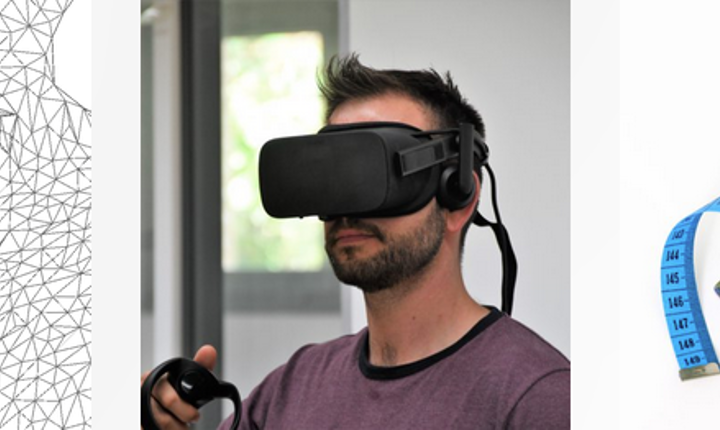Tech4Diet project - Computer Vision and Machine Learning to treat obesity

The non-adherence to obesity treatments is one of the main causes of their failure, turning obesity into a chronic disease in many countries of the world. The Tech4Diet project aims to take advantage of the most recent technological advances in 4D modelling and virtual reality to help tackle this issue. By building a 4D visual representation model of the human body for its morphological evolution analysis, the team is looking to enhance a patient's cognitive experience during the weight loss process, which has been shown to be an essential part of any obesity treatment's success.
The new system will provide immersive virtual reality visualizations and simulations of the treatment's effect, studying, in turn, how these realistic visualizations affect the patient's adherence to the treatment. Additionally, tools based on the model are being developed to facilitate the study of new indices based on anthropometric measurements and their evolution over time. A doctor could have access to multidimensional measurements extracted from the model, while a 3D archive of the entire evolution would be available throughout the process. Using low-cost technology is one of the conditions that would allow the tool to be put into practice, for example in health centres or nutritionists' clinics. However, the suggested methodology for obtaining the representation model of the morphological changes poses a significant scientific challenge. The use of wide-spectrum 3D acquisition technologies (RGBD), with characteristics of versatility, portability and ergonomics, involves addressing unresolved issues to this day regarding fundamental aspects of articulated and deformable registration methods. Members of our Data Intelligence team Marc Sebban and Amaury Habrard are contributing to the project through their expertise in Machine Learning, and more specifically, in Optimal Transport and Transfer Learning.
This collaboration with the University of Alicante, initiated in 2018, has already led to several scientific publications and the development of a new software called Tech4DScanserver (registrated in Spain).


The project is supported by the Spanish State Research Agency (AEI), the European Regional Development Fund (ERDF - project TIN2017-89069-R), and by the University of Alicante.
Consult the dedicated project page here




